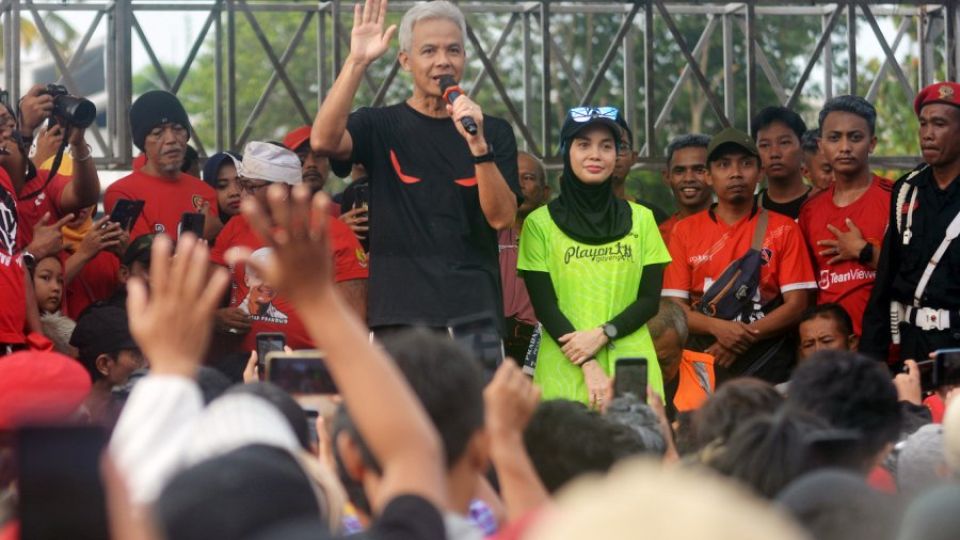July 14, 2023
JAKARTA – Spats between the ruling Indonesian Democratic Party of Struggle (PDI-P) and several groups of President Joko “Jokowi” Widodo’s grassroots supporters might put Ganjar Pranowo in a tight spot, especially at a time when the Central Java governor needs all the help he can get to reclaim his lead in electability surveys.
As the President is set to enter the final year of his second term, gibing has intensified between the ruling party and some Jokowi supporter groups that have backed him since his 2014 bid.
A meeting last week between supporters of Gerindra Party chairman Prabowo Subianto and two prominent pro-Jokowi groups, ProJo and Bara JP, has fueled speculation that the President is leaning toward backing his former election rival instead of PDI-P presidential candidate Ganjar.
Speaking after last week’s meeting, ProJo, founded on a backbone of former PDI-P members dissatisfied with the leadership of party chairwoman Megawati Soekarnoputri, took what analysts viewed as a swipe at the ruling party. The group praised Gerindra for not using a rigid “dichotomy between political parties and non-parties” when working with supporter groups.
The PDI-P has repeatedly drawn the line between political parties and supporter groups, saying that the former, and not the latter, have a constitutional right to participate and field candidates in the elections.
Megawati also made the party’s stance clear in June, when she stressed that political parties had and would lead efforts for their presidential candidates to win an election.
Analyst Agung Baskoro of Trias Politika Strategis said the ruling party’s defensive approach to supporter groups might pose a challenge for Ganjar, who had been struggling to reclaim his lead in the opinion polls.
Ganjar topped electability surveys for 18 months until April, when he had to grapple with the political fallout from his objection to the Israeli team’s participation in the U-20 World Cup. This led to him losing his electability lead to Prabowo, who has positioned himself as a viable alternative to Ganjar.
The latest opinion poll from the Indonesia Survey Institute (LSI), conducted from July 1 to 8, found that Prabowo was the front-runner in a simulated three-horse race with 35.8 percent electability. The same survey showed Ganjar and Anies following with 32.2 percent and 21.4 percent, respectively.
“It would be better for the PDI-P if it could embrace these supporter groups and try looking for common ground. Consolidating support at the grassroots level is important when the public connects more with a figure than a political party,” Agung said.
“The way the PDI-P responded to the aspirations of grassroots [supporters] has been overly defensive and could pose a challenge to Ganjar, who has been seeing his electability [rating] outpaced by rival Prabowo, as well as to its goal of securing a third consecutive win in 2024,” he said.
Asked about these potential challenges, PDI-P secretary-general Hasto Kristiyanto replied that nonmember supporters were “free to decide whom they support” and it was no concern to the party if Jokowi supporters switched to backing Prabowo instead of Ganjar.
“We already have our joint secretariat of [grassroots supporters], while other candidates do not,” Hasto added.


